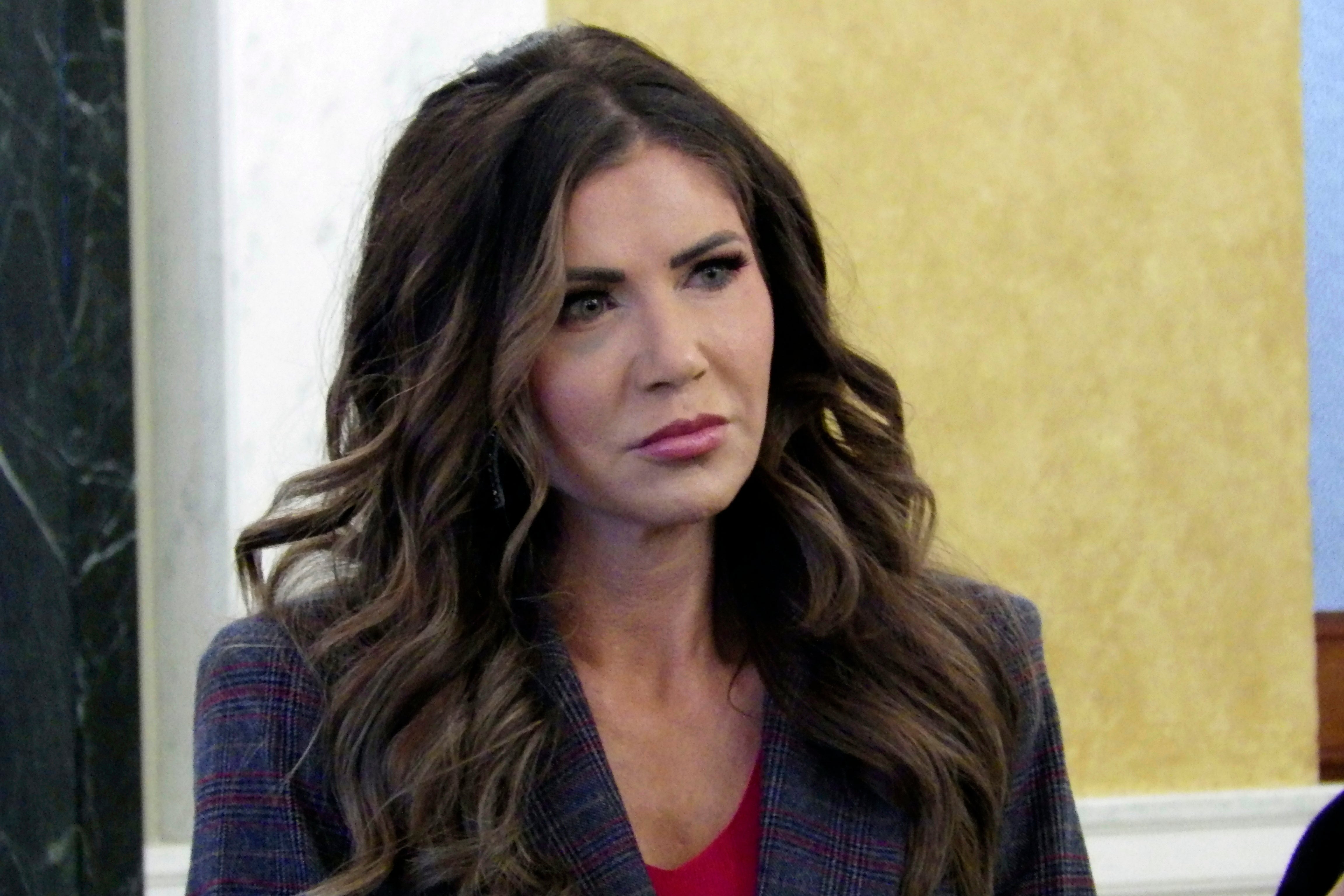South Dakota has apologized and must pay $300K to transgender advocates
South Dakota has apologized and will pay $300,000 under a settlement with a transgender advocacy group that sued Gov. Kristi Noem and her health secretary

Your support helps us to tell the story
From reproductive rights to climate change to Big Tech, The Independent is on the ground when the story is developing. Whether it's investigating the financials of Elon Musk's pro-Trump PAC or producing our latest documentary, 'The A Word', which shines a light on the American women fighting for reproductive rights, we know how important it is to parse out the facts from the messaging.
At such a critical moment in US history, we need reporters on the ground. Your donation allows us to keep sending journalists to speak to both sides of the story.
The Independent is trusted by Americans across the entire political spectrum. And unlike many other quality news outlets, we choose not to lock Americans out of our reporting and analysis with paywalls. We believe quality journalism should be available to everyone, paid for by those who can afford it.
Your support makes all the difference.South Dakota has apologized and will pay $300,000 under a settlement with a transgender advocacy group that sued Gov. Kristi Noem and her health secretary last year after the state terminated a contract with it.
Attorneys for the Transformation Project announced the settlement Monday. The nonprofit sued last year after the state canceled the contract for a community health worker in December 2022. The contract included a roughly $136,000 state-administered federal grant, about $39,000 of which the group received, according to its attorneys.
The organization alleged the state's decision “was based purely on national politics," citing Noem's statement to conservative media outlet The Daily Signal that the state government shouldn't participate in the group's efforts. The outlet had asked Noem about the group and one of its events.
“This settlement marks a significant milestone in our ongoing commitment to civil rights advocacy,” lead attorney Brendan Johnson said. “We commend the resiliency of the LGBTQ community and remain committed to vigorously upholding their rights.”
The apology, in a letter dated Jan. 18 and signed by South Dakota Health Secretary Health Melissa Magstadt, reads: “On behalf of the State of South Dakota, I apologize that the Transformation Project’s contract was terminated and for treating the Transformation Project differently than other organizations awarded Community Health Worker contracts.
“I want to emphasize that all South Dakotans are entitled to equal treatment under the law — regardless of their race, color, national origin, religion, disability, age, or sex. South Dakota is committed to ensuring that no person is excluded from participation in, denied the benefits of, or subject to discrimination under any program, activity, or service that it provides,” she wrote.
Magstadt was not health secretary at the time the contract was terminated. Her predecessor announced her retirement days after the state terminated the contract. The Transformation Project had hired a community health worker before the state ended the contract.
The state alleged contract violations in a letter from the deputy secretary noticing the termination. The group said it had complied.
Spokespersons for Noem and the state Department of Health did not immediately respond to email requests for comment on the settlement.
Transformation Project Community Health Worker/Project Coordinator Jack Fonder said in a statement: “I assumed the role of CHW with the intention of providing trans people in our community with the resources they require to succeed in this state, little realizing that doing so would result in my own outing as a trans man for standing up for what is right. We promise to keep up the battle for transgender rights and to make sure they have access to the resources they require."
The nonprofit offers help for LGBTQ+ people and their families, such as suicide prevention and guiding people through health care and social services, and educates about gender identity.
South Dakota and other Republican-led states have passed laws in recent years that have raised complaints about discrimination against transgender people, such as restricting school sports participation and banning gender-affirming care for kids.